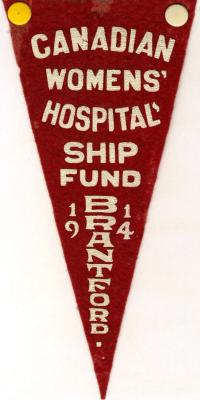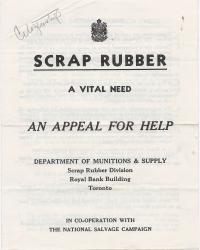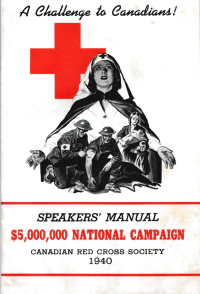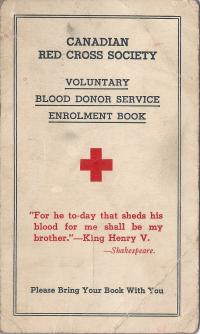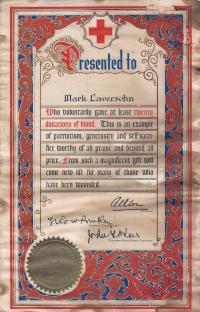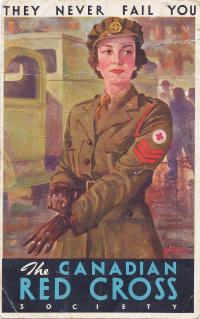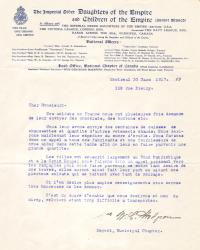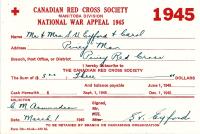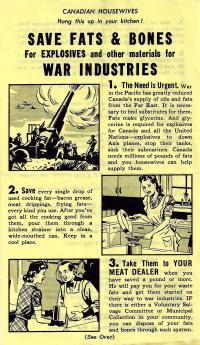Donations
Brantford's Hospital Ship Fund
On 9 August 1914, the city of Brantford, Ontario, kicked off its Old Home Week, which quickly turned into a fundraising opportunity for the war effort. The Brantford chapter of the Imperial Order Daughters of the Empire (IODE) raised $500 during tag day for the Hospital Ship Fund.
Recycling rubber
By 1943, Japan controlled up to three-quarters of the world's supply of crude rubber - making recycling essential if the Allied war effort was to continue.
Canadian Red Cross Speakers' Manual for the National Campaign
This booklet has instructions for speakers from the Canadian Red Cross Society, to help them meet their $5,000,000 goal in the 1940 national campaign. It includes information about how the Red Cross will use your donations, and sample speeches used encourage people to donate.
Giving the gift of life
Donating blood was even more important in wartime than peacetime, because of the need for "emergency transfusions to those of His Majesty's Forces or civilians who are war casualties."
Twenty blood donations
During the Second World War, giving blood was a patriotic act, and twenty donations earned Mark Laversohn a special certificate.
The need for blood
Thanks to advances in blood transfusion practice and technology during the First World War, blood could be stored and shipped more safely during the Second World War - and therefore there was a greater need for blood donors.
Maple sugar for soldiers
Noting that Canada's cities had given generously to war charities, the IODE asked rural groups to donate quantities of maple sugar to be sent overseas, to give soldiers a Canadian treat that could not be found in Europe.
Fund-raising tag days
During the First World War, paper tags were sold to raise money for various causes; in wearing them, donors could publicly demonstrate their support of the war effort.
Supporting the Canadian Red Cross Society
The donation from the Eyford family is the equivalent of roughly $47 in 2012 values, a generous gift from a rural community.
From kitchen to battlefield
One imperative of wartime Canada was that nothing should be wasted - so housewives were encouraged to save fats and bones which yielded glycerine, an essential component of explosives.

